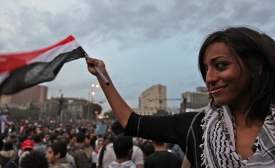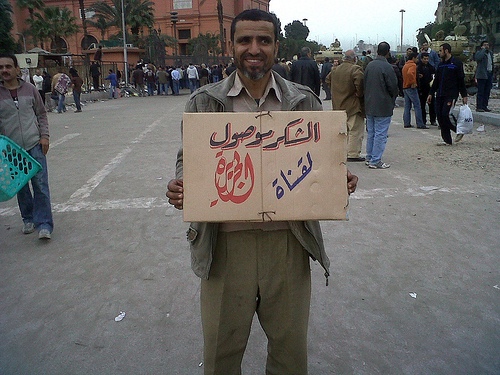Middle East
From all the terrible news typically coming out of reports from Israel and the West Bank, a March 15 article from Bloomberg Press, struck a happier note. For advocates of public diplomacy between Israelis and Palestinians, corporate diplomacy could be a key factor in restarting the peace process.

They should appreciate the fact that shutting out those you disagree with is not sustainable.
DOHA --- In past sessions of the Al Jazeera Forum, held each year in the network’s Qatar hometown, reform in the Arab world was discussed with an air of resignation: “Someday…maybe.”
As oppressive Arab regimes totter and topple under the pressure of democratization movements, Israel needs to engage directly with the region’s increasingly politically empowered peoples. But can Israel implement an effective public diplomacy and harness “soft power” with the citizenry of its neighborhood? The answer must be yes; but Israeli public diplomacy strategy and analysis over the past decade provide little guidance for outreach to Arab publics.
The Middle East is once again on fire, not because of American warfare, but due to apparently genuine movements aiming to get rid of old rulers and obsolete political systems. Tunisia, Egypt, Libya, Bahrain, and Yemen have all either passed the threshold of revolution or are on the verge. The dominos have fallen and it would not be imprudent to call it a day for rulers in other Arab countries like Saudi Arabia, United Arab Emirates, or Jordan.
WASHINGTON – Use of the Internet and social networks was a significant factor in Egypt during the past month, even when the Egyptian government tried to block online access, according to a survey of Cairo and Alexandria residents released this morning by the U.S. Broadcasting Board of Governors.
If the events in Egypt taught us anything over the past few weeks it is that notions of freedom and fear run in parallel. I was struck as many of you might have been by the myriad images and poignant stories pouring out of Egypt showing Egyptians by the thousands demanding their freedom and rallying for global support. It reminded me of why I have such an enduring appreciation and admiration for Egyptians as a people. They are deeply proud of their heritage and culture and this is infused in every aspect of daily life.

First, let’s be clear that this was the Egyptian Revolution, not the “Facebook Revolution” or the “Twitter Revolution.” Events of the past few weeks belong wholly to spirit of the Egyptian people, not technology. And although it was built on democratic aspirations, this was not a revolution that drew any inspiration from the United States.







